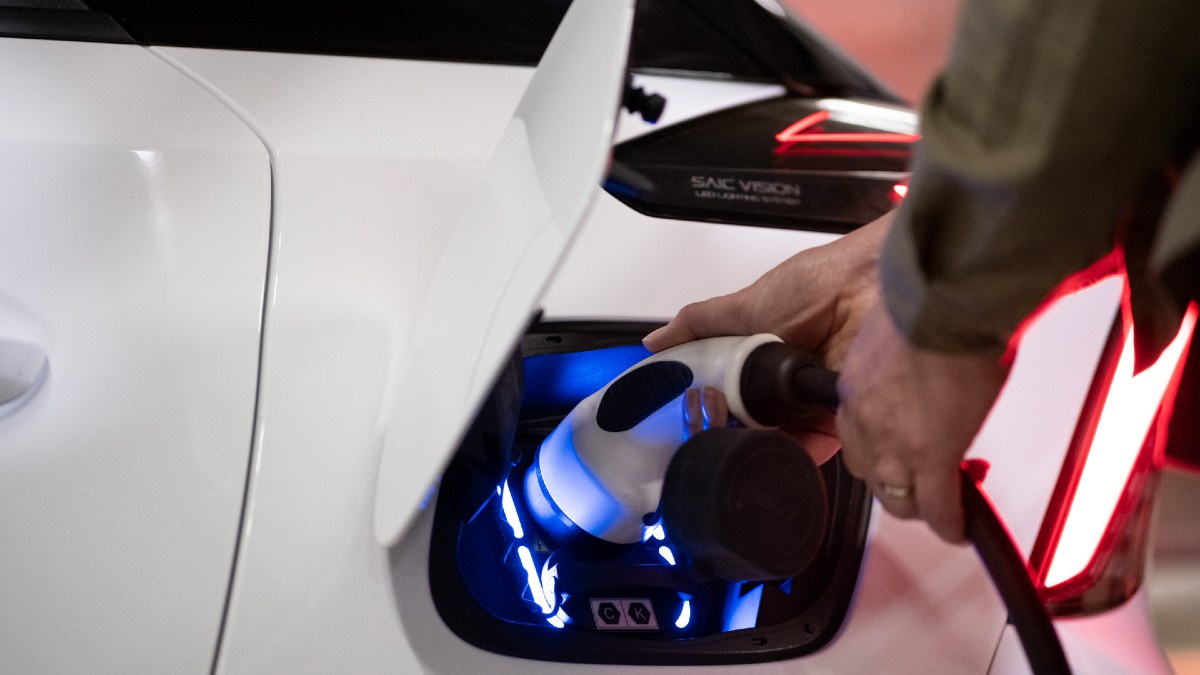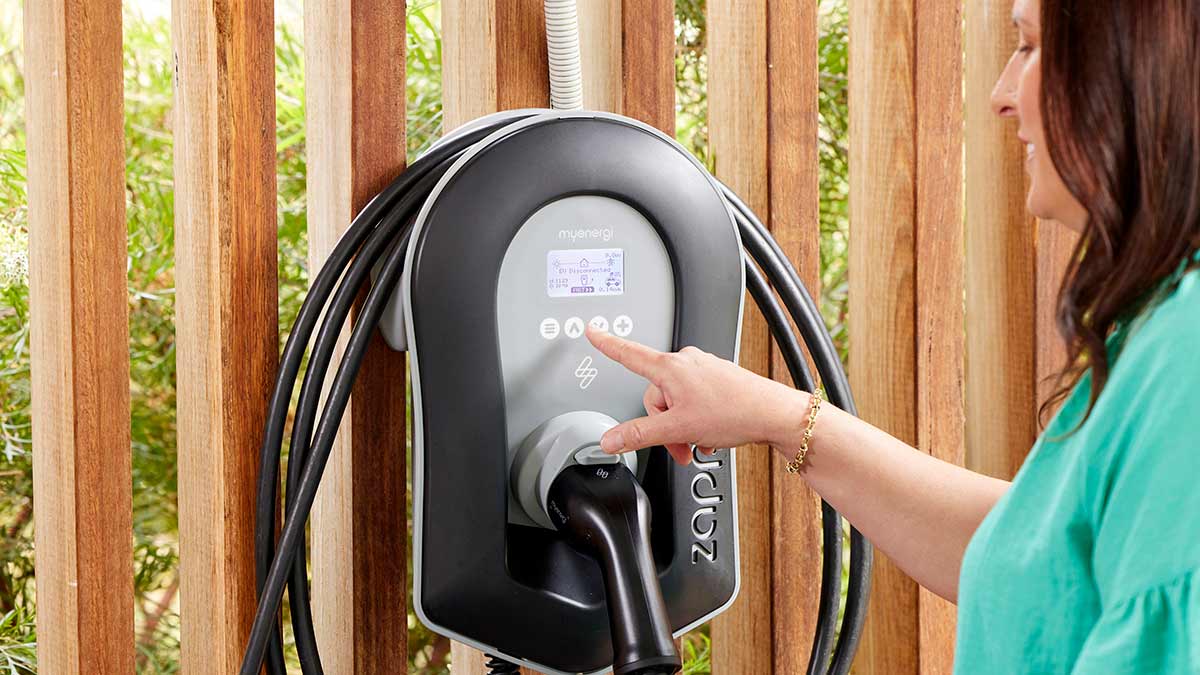Government Incentives For EV Chargers
The popularity of electric vehicles in the 21st century has accelerated the conversation regarding sustainability in the automotive industry. Government EV incentives help promote this adoption, providing financial incentives and making it even more cost effective to purchase these vehicles.
While there are plenty of Federal initiatives, depending on where you live, there are also State-based incentives that include everything from cash rebates, lower registration fees, and stamp duty exemptions. Without further ado, here are the Federal and State EV incentives in Australia.

Federal Government Incentives for EV Buyers
The Federal Government provides various EV incentives nationwide to promote the adoption of EVs. Eligible low or zero-emission vehicles first held and used after 1 July 2022 are now exempt from fringe benefits tax (FBT) via the Electric Car Discount; reducing the purchase and operation costs of an eligible EV through a novated lease by thousands of dollars per year.
The Federal Government has also removed the 5% import tax on EVs valued up to the luxury car tax threshold, which helps lower upfront costs.
Luxury Car Tax (LCT) Exemptions
The luxury car tax is an additional cost for people who purchase expensive cars in Australia. The LCT threshold is significantly higher for EVs than non-EVs. For the 2024/25 financial year, the LCT threshold for EVs has been increased to $91,387 (compared to $80,567 for non-EVs). This incentivises car owners to buy more expensive cars than non-EV drivers without having to worry about the LCT.
Investment in Charging Infrastructure
The Australian government has committed $74.5 million towards developing EV charging infrastructure to further support EV users. In addition to these Federal investments, there are also state-based incentives that may be beneficial to certain residents.
State and Territory Incentives
Each state and territory in Australia has individual EV government incentives.
Victoria
The Victoria state government has a $100 registration fee discount, a $3,000 subsidy for battery electric vehicles (BEVs), and reduced motor vehicle duty rates available:
- $100 registration fee discount: Zero and low emission vehicles (ZLEVs) are eligible for a registration discount of up to $100 per year
- $3,000 subsidy: This subsidy applies to BEVs priced under $68,740.
- Reduced motor vehicle duty rates: A flat rate of vehicle motor duty that applies to ‘green’ vehicles.
Australian Capital Territory (ACT)
Eligible ACT residents can apply for interest-free loans of up to $15,000 to help with the costs of energy-efficient upgrades such as electric vehicles. New or used zero-emissions vehicle owners in the ACT purchased between 24 May 2021 and 30 June 2024 are eligible for two years of free registration.
After the two-year-period, these owners can get a 20% discount on registration fees for up to 12 months for a vehicle registered before 30 June 2024. Both new and used zero-emission vehicles are also exempt from stamp duty.
New South Wales (NSW)
Eligible new or used EVs and fuel cell electric vehicles (FCEVs) with a dutiable value of up to $78,000 are exempt from stamp duty, resulting in savings of between $1,200 and $18,000.
The $3,000 rebate for eligible EV purchases ended on 31 December 2023. Applications lodged from 1 January 2024 require proof of purchase and deposit payment indicating that the purchase was made before 1 January 2024.
Queensland
Hybrid and electric vehicle drivers pay the lowest vehicle registration duty rates in Queensland, with savings of approximately $660. The Zero Emission Vehicle Rebate Scheme gives rebates of between $3,000 and $6,000 to eligible Queenslanders and businesses who purchase a new zero-emission vehicle.
South Australia
There's a three-year registration fee exemption in South Australia for new battery electric and hydrogen fuel cell vehicles valued up to $68,750.
Unfortunately, South Australia’s $3,000 EV subsidy scheme closed on 31 December 2023. However, drivers who entered a contract to purchase an eligible EV before the closing date but are still awaiting delivery of the vehicle can still receive the subsidy.
Tasmania
The Tasmanian government is making a total of 375 rebates of $2,000 each available to drivers who purchase an EV and register it in Tasmania until the available funds ($750,000 total) are expended.
Eligible Tasmanian residents can also get an interest-free loan of between $500 and $10,000 to install home charging facilities for electric vehicles through the Energy Saver Loan Scheme. They must be repaid over a period of 1-3 years.
Northern Territory (NT)
NT drivers get a stamp duty concession on plug-in EVs valued up to $50,000 (possible savings of up to $1,500) from 1 July 2022 to 30 June 2027. Under the Electric Vehicle Charger Grants Scheme, the NT Government is offering residential grants of $1,000 and business grants of $2,500 to EV owners who buy and install EV chargers on a first-come, first-served basis.
The NT also offers free registration for EVs, including previously registered vehicles, interstate transfers and imported or modified PEVs.

Recent Developments and Future Outlook
Here are some insights into the latest initiatives and future plans related to EV incentives in Australia.
Support for Farmers and Truck Drivers
The federal government has allocated $50 million to subsidise EV loans for farmers and truck drivers. With hopes to decarbonise key industries by using greener transport options, loan assistance will be offered to eligible farmers and freight firms as well as small to medium businesses.
Under this scheme, eligible borrowers paying off a loan on a $60,000 EV could save around $1700 in interest over a five year period.
National Electric Vehicle Strategy
The National Electric Vehicle Strategy proposed by the Albanese government promises a new fuel efficiency standard and battery recycling. It aims to impose a fuel efficiency standard on new cars and encourage electric vehicle adoption to cut 3 million tonnes of carbon emissions by 2030. The exact details are scarce at the moment, but expect to see the full outline of this strategy soon.
How to Take Advantage of These Incentives
The first step is to look at the qualifications to see which incentives you’re eligible for. Every state has its own website dedicated to EV rebates and federal incentives are available on the Australian Government’s Department of Climate Change, Energy, the Environment and Water website. Once you find one you’re eligible for, follow the steps to apply.
Looking to Purchase Your EV Charger
If the benefits from owning an EV weren’t enough, the Australia EV incentives should be more than enough to motivate you to switch to electric mobility.
revcharge is an end-to-end provider of home EV charging stations that also carry out installations. Contact us to request a free quote and get started on your EV journey!



